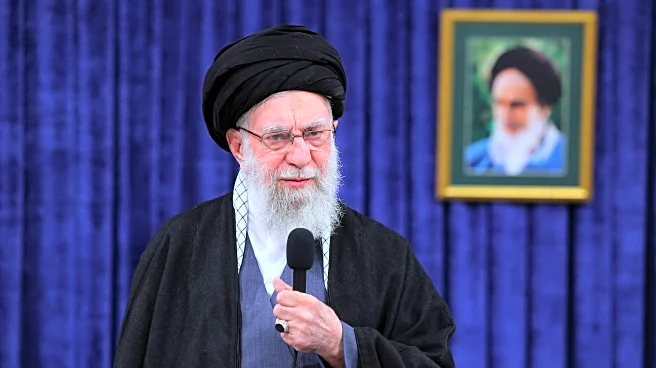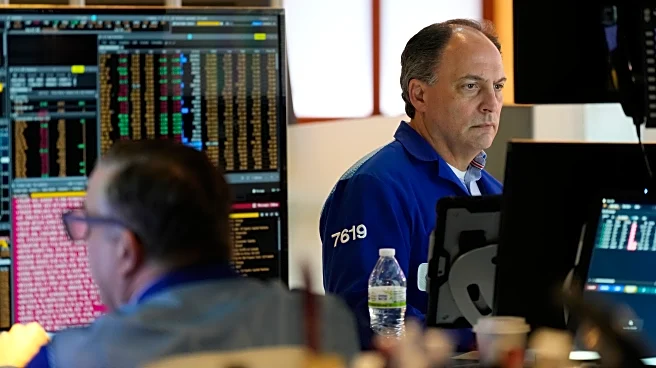What's Happening?
Tiana Mangakahia, a former standout player for Syracuse University's women's basketball team, has passed away at the age of 30 following a prolonged battle with cancer. Mangakahia, who had a successful professional career in Russia, France, and Australia, was first diagnosed with breast cancer in June 2019. Despite undergoing eight rounds of chemotherapy and two surgeries, she returned to Syracuse to complete her final year of eligibility. Her family announced her passing, highlighting her kindness, strength, and courage. Syracuse athletic director John Wildhack and Basketball Australia both expressed their condolences, praising her as an inspiration both on and off the court.
Why It's Important?
Mangakahia's passing is a significant loss to the basketball community and highlights the ongoing battle against cancer faced by many athletes. Her story of resilience and determination serves as an inspiration, demonstrating the challenges athletes can face beyond the court. Her return to basketball after her initial diagnosis and her subsequent involvement in coaching and cancer awareness initiatives underscore her commitment to the sport and her community. Her legacy will likely continue to inspire future generations of athletes and cancer survivors.
What's Next?
In the wake of Mangakahia's passing, there may be increased efforts within the basketball community to support cancer research and awareness. Her story could inspire more fundraising events and initiatives aimed at combating cancer, particularly within sports organizations. Additionally, her impact on the Syracuse community and beyond may lead to tributes or memorials in her honor, celebrating her contributions to the sport and her courageous battle against cancer.
Beyond the Headlines
Mangakahia's journey highlights the broader issue of health challenges faced by athletes and the importance of support systems in sports. Her involvement in coaching and advocacy for breast cancer awareness reflects a growing trend of athletes using their platforms to address significant social and health issues. This development could encourage more athletes to engage in similar advocacy work, leveraging their influence to drive positive change.










